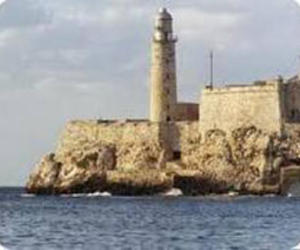Blockade of Cuba left valley on edge
- Submitted by: manso
- Politics and Government
- 07 / 13 / 2011

Joe Blackstock, Staff Writer. Posted: 07/11/2011 08:07:23 PM PDT.Next year will mark a half-century from the day when the United States teetered on the brink of nuclear war.
The stakes were very high on Oct. 22, 1962, when President Kennedy, in an historic message to the nation, ordered a blockade around Cuba and threatened the Soviets if they did not remove missiles found there. Tensions were great as a nuclear war seemed imminent.
Fortunately, as history tells us, the Soviets backed down, and the closest the Cold War ever came to becoming World War III was over.
Those were tense days in the Inland Valley immediately after Kennedy raised the stakes with the Russians.
Members of the Reserve and National Guard were alerted they might be recalled to active duty, and civilians were told to stock up on food and water.
There wasn't a lot of panic but ...
A day after the president's message, Boys Republic in Chino reported that 10 wards of the court had run away. "According to other staff members and other boys, they were quite disturbed by the international situation and wanted to be with their families," said Blake Doney, a supervisor at the school.
There was similar uncertainly on the parts of Inland Valley residents, especially when they heard a statement by Los Angeles Civil Defense Director Joseph M. Quinn that retail stores would probably close in the event of the start of war.
Later Quinn admitted he was just reading from a statement that was printed on a 1960 brochure on economic preparedness, but that didn't stop residents from flooding local markets.
Told they should have enough food and water for 14 days, residents quickly caused a run on canned foods and bottled water. When the water was all sold - and this was long before whole aisles of markets were lined with dozens of bottled water products - canned juices were next.
One market in Pomona foolishly put powdered milk on sale, only to have 30 cases snapped up in a few hours.
The manager at Thriftimart on Garey Avenue in Pomona said he thought people were buying not so much because of the Civil Defense warning, but a fear of a return of rationing that had occurred during World War II.
Remember during our gas shortages how you would automatically get into a line at a gas station, even if you didn't really need any gas, just because it was there? The same was true at the markets in 1962.
Actually, the only shortage in local markets was employees to restock the shelves. When customers came to the store and saw so little still available, they panicked and grabbed everything that was left.
Military enlistment centers also did a brisk business in the days after Kennedy's speech.
One Pomona Navy recruiting office reported a 60-year-old man had asked to join up.
"When the recruiting officer told him he was over the age to be eligible for the Navy, the man did a soft-shoe dance to demonstrate that he is in fine shape," reported the Pomona Progress-Bulletin on Oct. 26.
The Navy recruiter, faced with neither a need for over-aged recruits nor dancers, still refused him.
The key concern on most people's minds was the threat of nuclear strikes by the Soviets. A few people had dug fallout shelters in the 1950s, but there was little shelter available for the masses.
Local Civil Defense offices were quickly organized in most cities.
Furious Fontana residents bombarded City Hall with calls after the city's Civil Defense director, Clarence James, frankly admitted in an interview, "We don't have any Civil Defense."
City officials did what all city officials do when faced with such a crisis: They scheduled a meeting to talk about it.
Jean Doktor, secretary of Claremont's Civil Defense, announced on Oct. 23 that her office was undertaking a survey of buildings that are "reasonably safe" in the event of radioactive fallout.
Undoubtedly she found few.
Montclair tried to reassure its residents, though admitting there was not a single shelter in the city.
Ontario's CD Assistant Director Neville L. Grow said his city had no public shelters and only about 150 private ones. I suspect he didn't calm very many people when he said the best place during a nuclear air raid is the hallway of the family home.
While no Soviet missiles rained down on the Inland Valley during that 1962 crisis, there actually was a large explosion here on Oct. 26.
In one of the most unfortunate coincidences imaginable, Chino Airport officials on that day planned to demolish a concrete revetment, used to shield fighter planes at the airport during World War II. A private firm had been contracted to blow up the structure with more than 700 pounds of black powder so that the runway could be lengthened.
Officials in Chino and Ontario pleaded for a delay citing the likely anxiety it would cause for the already nervous population. The explosion still went forward, and without incident.
It would be, fortunately, the closest we ever got to nuclear Armageddon during the Cold War.
Source: www.contracostatimes.com/california/ci_18458470?nclick_check=1
Comments